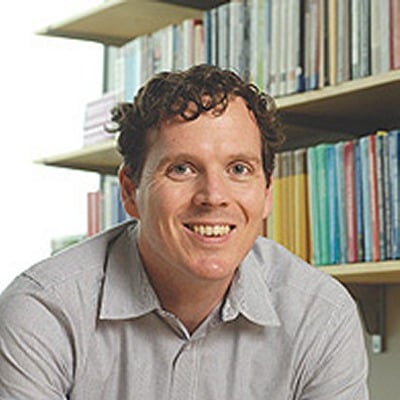Ai Geonomics -which
Nvidia AI 350 library/platform needed by national development priority?
|
Library |
nation |
(new) Partners |
Purpose |
|
Omniverse Dig Twins issac & Cosmos Robots J&J
surgery, cateroillardisney Newton, Musk |
US |
TSMG, Foxconn, Jakobs Siemens FII |
Made in America: (Hardware of Nvidia
AI Factory) 1.28.30 keynote dc oct 2025 Once factory
running overseeing agents safety and onboarding – Issac & Cosmos &
metroplois |
|
ARC |
US |
Nokia |
6g AI Telecoms |
|
Hyperion-Drive |
US |
Uber |
Self-drive car and path to
autonomous robots |
|
Co-Quantum |
US |
7 DoEnergy supercomputers |
Energy distribution; also biotech or
any Einstein related maths |
|
Cuda-X & nemotron |
US |
Enterprise AI |
Transforming Finance and many other
coroprate sectors |
|
Co-quantum Isaac-sims |
Asean Archipelago |
|
Disaster relief & earth2.0 |
|
Rapids cuML BioneMo |
Asean Archipelago |
|
Fishery/Forrestry Sustainability Bionemo ecosystem modeling |
|
Omniverse (Digital
Twins RTX) + RAPIDS cuDF visitdata |
Asean A |
|
Bluegreen Tourism |
|
Aerial (6G
for remote monitoring) + Nemotron (agentic optimization |
Asean A |
|
Energy Imports/Green Grids |
|
Riva |
India |
|
Translation India’s 30+ Dialects |
|
Riva-nemo-tensort |
India |
Reliance |
AI factories; Telecoms Edge apps in
eg agriculture and weather by small farmers and communities |
|
CuDNN – nemo-tensorrt |
India |
Tata |
Health services and supply chain;
nemo support india policy nims; cudnn leraning agency teens |
|
Rapids cuDNN; tensorrt |
India |
Yotta Data Wipro |
Clouds- empoweering edge open ai
models Consulting apps for
finance-manufacturing; cyber; supply chain dashboards |
|
Inception startups |
India |
|
Eg srvam.ai first home grown llm gnani.aivoice to voice llm; train
nemo on hopper.. |
|
cuOpt (Logistics Optimization
via cuGraph/cuBLAS)
|
Saudi/Imec |
National vision Overland corridor to
3 seas |
Aligns with National
Logistics Program: Handles petabyte-scale data for automated ports/rail,
targeting top-25 LPI rank; enables real-time win-wins like joint UAE-Egypt
cargo flows. |
|
Omniverse (Digital Twins via
OpenUSD/RTX/PhysX) |
|
|
Core to HUMAIN/SDAIA
deals: Powers NEOM's "The Line" (car-free city) and logistics hubs;
accelerates $800B tourism investments by 50% via pre-build validations. High
cultural neighbor standards UAE? |
|
RAPIDS (Data Analytics via
cuDF/cuML) * |
Saudi/Imec |
|
Fuels sovereign AI
factories: Processes 1.4B+ data points for GDP +1.4% lift; critical for
underrepresented tourism redesigns (e.g., safety predictive crwods eg Qiddiya |
Previously in 2024...LLMs shared:
CUDA (Compute Unified Device Architecture) is not an operating system like Windows or Linux. It's a parallel computing platform and programming model specifically designed to leverage the power of Nvidia GPUs for various tasks, including:
- Generative AI: Training large AI models often benefits from the parallel processing capabilities offered by GPUs. CUDA allows developers to write code that efficiently utilizes these capabilities.
- Scientific Computing: Complex simulations and calculations can be accelerated significantly by using GPUs with CUDA.
- Machine Learning: Training and deploying machine learning models can be optimized using CUDA.
Big companies with their own generative AI models absolutely can and do use CUDA. Here's why:
- Performance Advantage: When dealing with massive datasets and complex AI models, the parallel processing power of GPUs with CUDA can significantly outperform traditional CPUs. This translates to faster training times and improved model performance.
- Developer Ecosystem: CUDA has a well-established developer ecosystem with extensive libraries, tools, and documentation. This makes it easier for companies to integrate CUDA into their existing workflows and leverage the expertise of a large developer community.
- Focus on Expertise: Big companies might have their own AI research teams, but using CUDA doesn't necessarily require in-house expertise on the specifics of GPU programming. They can hire developers with CUDA skills or utilize existing frameworks built on top of CUDA.
While CUDA is not the only way to program for Nvidia GPUs, it's a dominant force in the field. Here are some other options to consider:
- OpenCL: An open standard for parallel programming across various platforms, including GPUs.
- TensorFlow/PyTorch: Popular deep learning frameworks that can leverage CUDA for GPU acceleration without requiring direct CUDA programming.
In conclusion:
- CUDA is a powerful platform for parallel computing on Nvidia GPUs.
- Big companies with their own generative AI models can and do use CUDA to benefit from its performance advantages and established developer ecosystem.
- CUDA is not the only option, but it's a major player in the world of GPU programming.
ok huang talks about accelerated computing doing multidimensional analysis at same time whereas historic gu has done one analysis at a time - is cuda what makes the multidimensional analysis possible?
- Faster Analysis: Large datasets and complex models can be analyzed much quicker, leading to quicker insights and decision making.
- More Complex Analysis: The ability to analyze multiple dimensions simultaneously opens doors to explore more intricate relationships within the data.
- Real-time Applications: Certain tasks that were too slow for traditional methods can now be performed in real-time, enabling applications like real-time fraud detection or stock market analysis.
In essence, CUDA acts as the key that unlocks the parallel processing power of GPUs, making multidimensional analysis a reality and accelerating the pace of scientific discovery and data-driven applications.
Additional Points:
- While CUDA is a powerful tool, it requires some programming expertise. Other frameworks built on top of CUDA, like TensorFlow or PyTorch, can simplify development for those new to GPU programming.
- Other factors beyond CUDA, like efficient algorithms and optimized data structures, also contribute to faster and more efficient multidimensional analysis..
